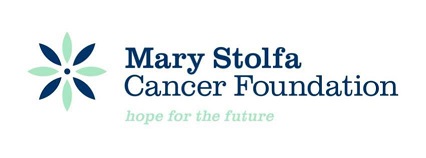 |

|
|
|
A new clinical trial has shown that reducing the interval between successive doses of a commonly used chemotherapy regimen improves survival in women whose breast cancer has spread to the lymph nodes. While previous research has evaluated the use of various forms of "dose dense" chemotherapy, this is the first major controlled study to show a clear survival benefit for women with node-positive breast cancer. The study was conducted by Cancer and Leukemia Group B (CALGB) for the Breast Cancer Intergroup, a consortium of National Cancer Institute (NCI)-sponsored Cooperative Clinical Trials Groups, and is being presented today at the 25th Annual San Antonio Breast Cancer Symposium*. "This study suggests that many women with breast cancer may benefit from chemotherapy administered on a condensed schedule," said Marc L. Citron, M.D., Albert Einstein College of Medicine, who is the lead investigator of the study. "With the availability of new drugs to control one of the most serious side effects of chemotherapy administration, we can further increase the chances of survival for women with breast cancer." The dose dense regimen was made tolerable for patients because of the drug filgrastim, which helps prevent neutropenia, a serious complication of chemotherapy. The researchers found that two dose dense regimens provided significantly higher disease-free survival rates than two regimens using conventional dosing, and that efficacy did not differ between the two dose dense regimens. Among patients on the dose dense regimens, disease-free survival was 82 percent after four years, compared to 75 percent for those who received conventional therapy. This difference corresponded to a 26 percent overall reduction in the risk of cancer recurrence. The findings confirm the predictions of a mathematical model developed in the 1980s that suggested the value of increased dose density, which was the impetus for the study. "The improvement in outcome could well represent an important advance in our knowledge of the biology of breast cancer and how best to treat it," said Larry Norton, M.D., of Memorial Sloan-Kettering Cancer Center, senior investigator of the study and one of the developers of the original model. "If confirmed and extended by additional research, this finding could positively affect the care of thousands of patients throughout the world with breast cancer and perhaps, eventually, other diseases." Researchers tested both dose dense and conventional chemotherapy regimens in 1,973 women with node-positive primary breast cancer and no other metastases. Following surgical removal of their tumors, the women were assigned to one of four treatment regimens involving the standard chemotherapy drugs doxorubicin (A), paclitaxel (T), and cyclophosphamide (C): Sequential administration (A followed by T, followed by C) in three-week intervals (conventional) Sequential administration in two-week intervals, with filgrastim (dose dense) Concurrent administration (A and C together, followed by T) in three-week intervals Concurrent administration in two-week intervals, with filgrastim (dose dense) Since frequent administration of chemotherapy can result in a condition called neutropenia, a decline in the number of a certain type of white blood cells, the researchers administered filgrastim to patients on the dose dense regimens. Also known as the granulocyte-colony stimulating factor (G-CSF), filgrastim helps prevent neutropenia by stimulating the formation of white blood cells called neutrophils. Without it, chemotherapy dosing frequency is limited to longer intervals. "It is too soon to determine whether a dose dense chemotherapy regimen with filgrastim should be the new standard of care," said Jeffrey Abrams, the oncologist in charge of breast cancer treatment trials at NCI. "However, the reduced risk of cancer recurrence and the low occurrence of side effects are encouraging, and further follow-up as well as other studies testing this approach will hopefully confirm the findings." In addition to improved disease-free survival, the study indicated that dose dense chemotherapy may also lead to higher overall survival rates. After three years, 92 percent of patients on the dose dense therapy were alive, compared to 90 percent of those on the conventionally administered regimens. This difference corresponded to a 31 percent overall reduction in the risk of death. However, the study authors cautioned that additional follow-up is necessary to confirm this overall survival benefit. Side effects were found to be no more severe among patients on the dose dense regimens than among those on the conventional treatments, and patients on the dose dense regimens suffered fewer cases of neutropenia. In addition, the study showed that sequential administration produced slightly fewer side effects than the concurrent regimens, with equal efficacy. Since the mathematical model that led to this study applies to most cancer types and many anti-cancer drugs, the researchers hypothesize that future clinical trials could examine the benefits of dose dense chemotherapy using other drugs and in other types of cancer. * The study will be published in an upcoming issue of the Journal of Clinical Oncology. Citron, ML et al. Superiority of dose dense over conventional scheduling and equivalence of sequential vs. combination adjuvant chemotherapy for node-positive breast cancer (CALGB 9741, INT C9741). Presented Dec. 12, 2002, 10 a.m. EST at the 25th Annual San Antonio Breast Cancer Symposium. Posted Date: Thursday, December 12, 2002 | About Mary Stolfa | Our Mission | Newsletter | Volunteer | Beauty Parlor | News Articles | Clinical Trials | Other Resources for Cancer Information | Nutrition | Acknowledgement, Awards & Public Acclaim | Foundation Projects | MSCF Products | | Return Home | Fundraisers | Donations | Wall of Honor | Stories of Hope | Information on Specific Cancers (A-M) | Cancer Issues | Contact Us | Site Index | |
||
